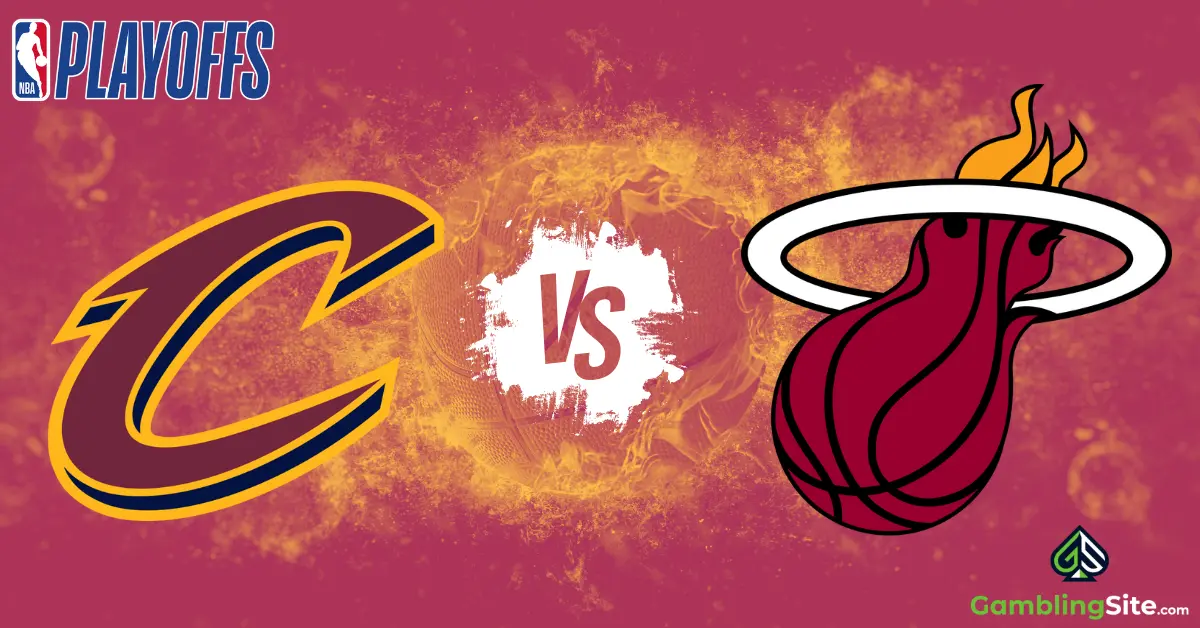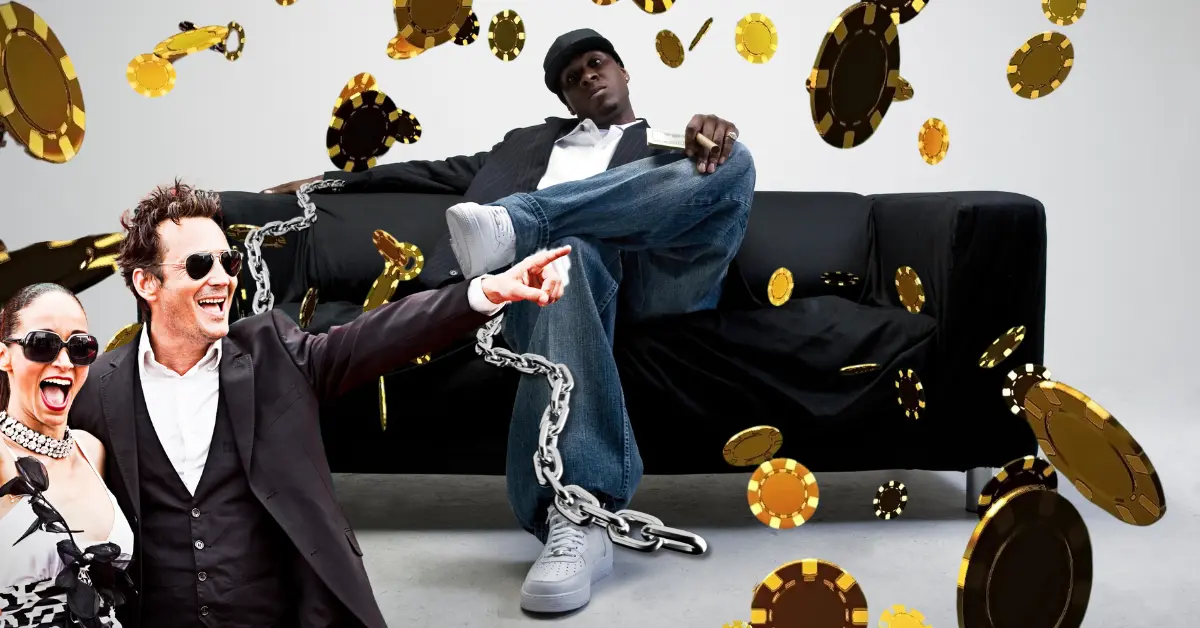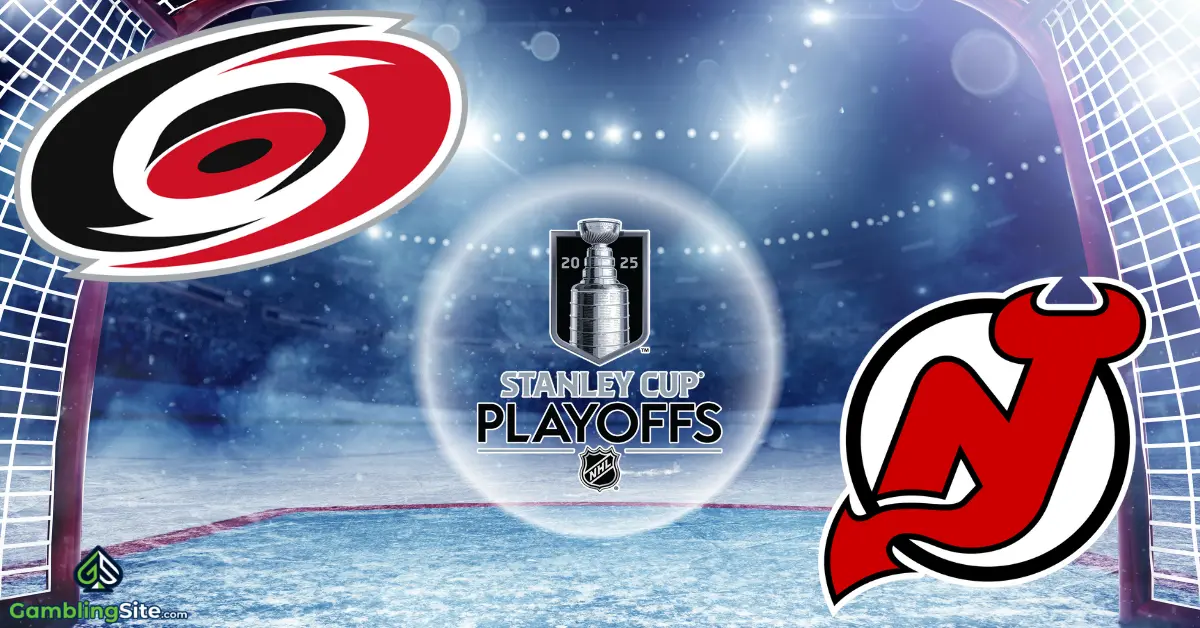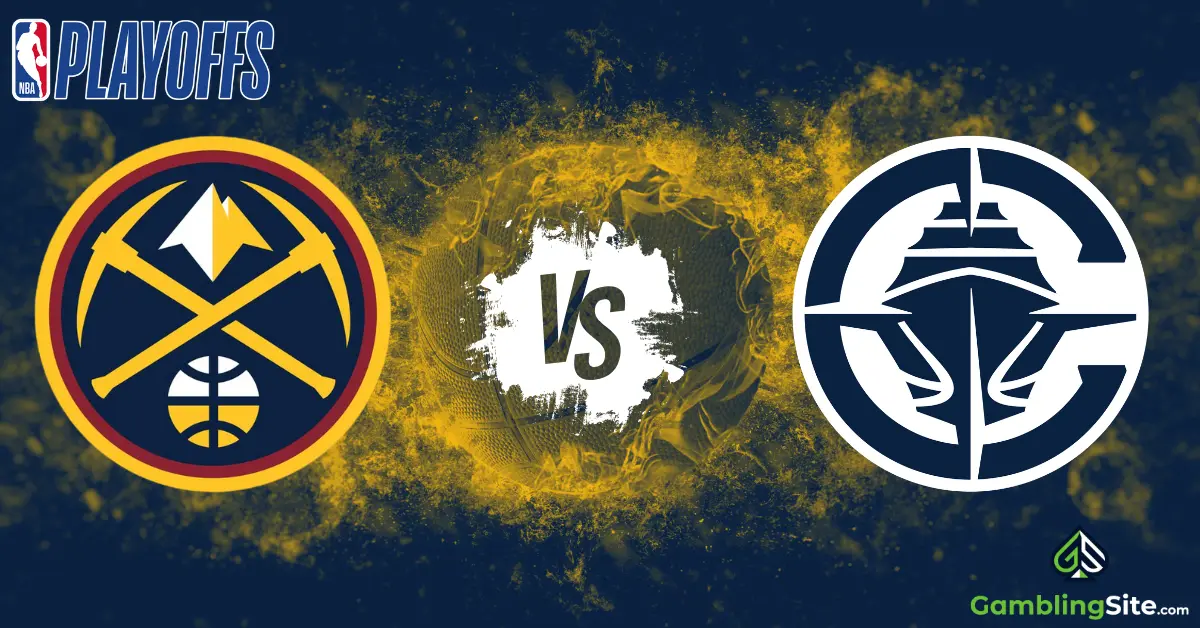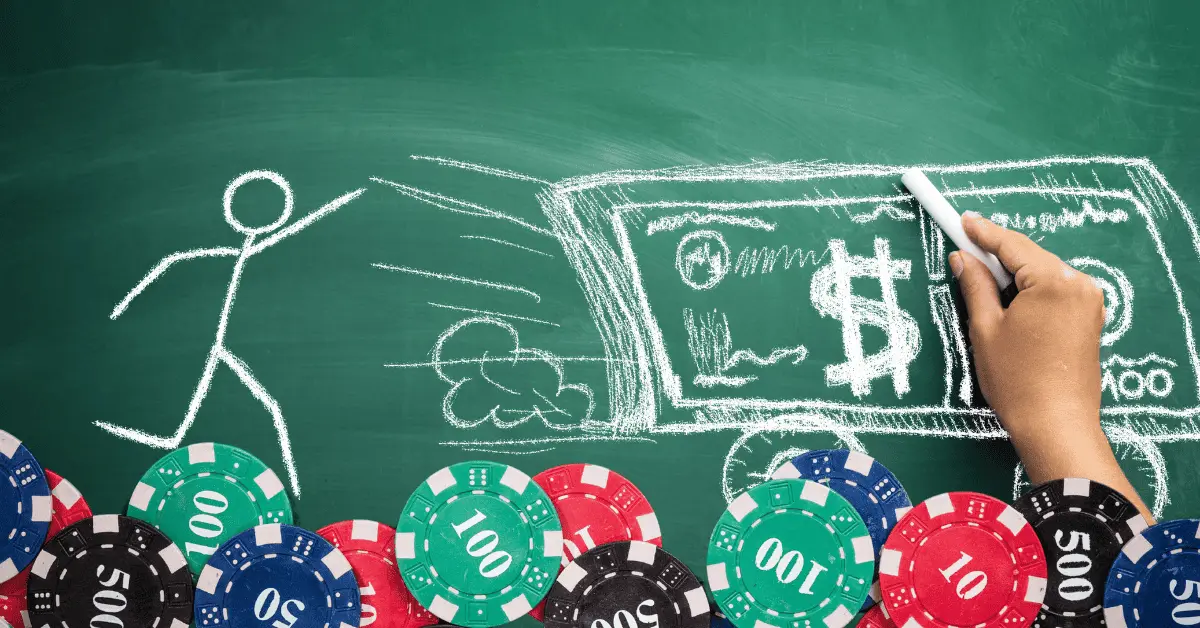The Science of Luck: How Random Is Gambling Really?
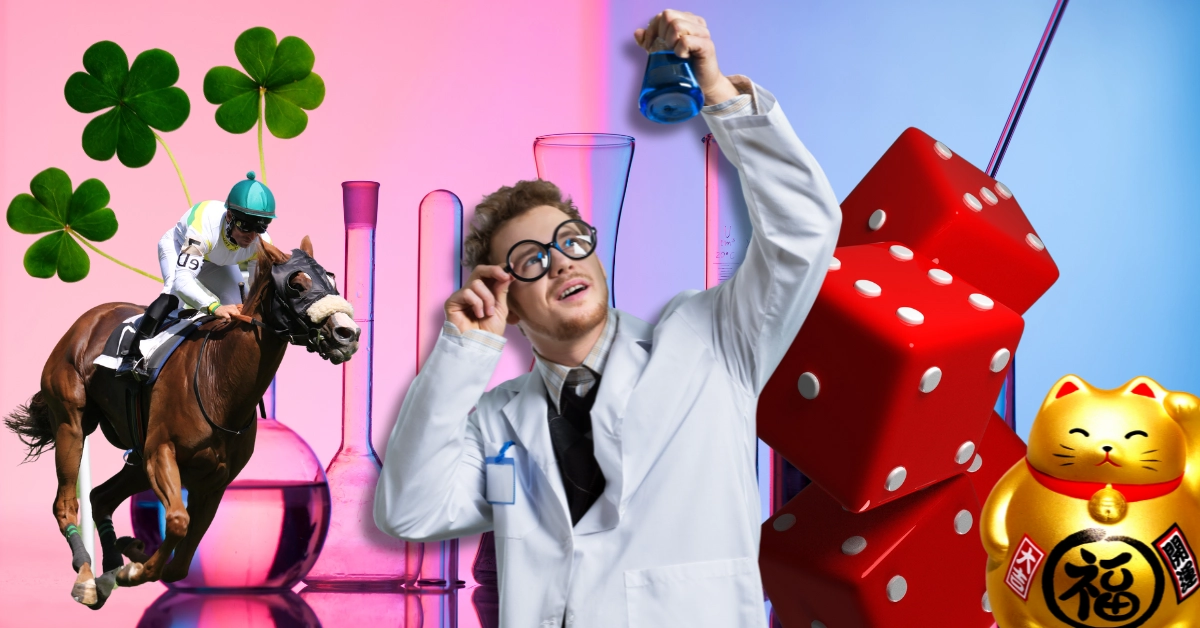
You’re sitting at a slot machine, heart racing as the reels spin, or maybe you’re clutching a poker hand, praying that the next card flips in your favor. Anyone who has ever gambled has felt that buzz of hoping that luck is on our side. Not to rain on our luck parade, but is luck even real? Or is it just a sly illusion–a story that we tell ourselves to make some sort of sense of the cold, hard math that is ticking away like a time bomb behind every bet?
Gambling exists because of the excitement of uncertainty—the idea that maybe, just maybe, the universe will toss a win your way. But if you really stop to think about it, what’s actually happening? Is that roulette wheel spinning purely by chance, or is there a system that is tilted in the house’s favor?
What are the exact mechanics behind gambling and luck? Are there any at all? We aim to find out what is happening and who is deciding your blackjack hand, the psychology that keeps you hitting “spin” just one more time, and the physics that dictates where the roulette ball lands. We’ll also unpack why our brains invent “lucky streaks” even when probability insists that they don’t exist. Forget about any karmic forces—human psychology is the real driver here, and it is wired to chase hope even when logic is screaming at us to stop.
By the conclusion, you’ll walk away with a better picture of what “luck” really means—and whether or not it’s ever actually on your side (or if it exists).
What Is Luck? The Psychological Perspective
Let’s start out with a basic question: What is luck? We throw the word around all the time—“Good luck!” “You are sooo lucky!”—but if you press someone to define it, things can get kinda fuzzy. Most people would probably describe luck as some invisible force, a cosmic thumb on the scale that tips outcomes in their favor (or against it). But psychologists have a different take: Luck isn’t any kind of magic. It’s perception.
Humans are pattern-seeking machines. We’re wired to connect dots, even when they don’t exist. This is why, after flipping five heads in a row, you’re convinced the next coin toss has to be tails (that’s the Gambler’s Fallacy). Or why does a basketball player sink three shots, and suddenly everyone believes they’re “on fire” (hello, hot-hand fallacy)? The biases trick us into seeing order in chaos, making randomness feel personal—like luck is rewarding or punishing us.
Take casinos, for example. Ever noticed how slot machine players knock on the screen or blow on dice before rolling? These rituals aren’t just quirky habits. Studies show that superstitions like these give people a sense of control in situations where they have none. In one experiment, researchers gave people “lucky” golf balls and watched them putt more confidently—and successfully—than those with “regular” balls. The balls were identical. The only difference was the belief in luck.
Even “lucky” people aren’t immune to randomness—they’re just much better at framing it. Psychologist Richard Wiseman found that self-described “lucky” people tend to notice opportunities others miss and shrug off any setbacks as only temporary. In other words, they’re not blessed by fate; they’re subconsciously manipulating their own narratives to match up with what they consider to be “luck.”
So, is luck real? Absolutely—just not in the way we are accustomed to thinking about it. It’s a mental shortcut—basically a way to cope with the unsettling truth that life (and gambling) is always unpredictable. Our brains would rather invent a story about lucky underwear or a haunted blackjack table rather than stare into the void of pure chance.
Luck is way less about what’s happening to you and more about how you’re wired to interpret it. And once you know that the house edge feels a little less mysterious—and a lot more human.
The Mathematics of Gambling: Probability and Randomness
Let’s get one thing straight: Luck might feel mystical, but math is the puppet master that is pulling the strings. It doesn’t matter if you’re mean-mugging a slot machine or watching a roulette wheel spin around and around—every game is built on a foundation of probability and randomness. Want to know how it works? Keep reading, and don’t worry, no calculus is required—we aren’t cruel!
What Even Is Randomness?
Randomness means unpredictability. Flip a coin, and you can’t know if it’ll land heads or tails—not because you lack intuition, but because tiny variables (air resistance, thumb force, surface texture) make the outcome unpredictable. But in gambling? The unpredictability is literally engineered.
Take slot machines: Modern ones use random number generators (RNGs), the algorithms that spit out thousands of numbers per second—even when you’re not playing. When you hit “spin,” the machine grabs the number it’s currently on to determine your result: no memory, no patterns, no “hot” or “cold” streaks. There’s just a lot of math going on in the background.
Games like roulette and craps? They’re physical but no less random. A roulette wheel might seem like it’s more predictable, but there are tiny imperfections in the wheel, the ball’s spin speed, and even air currents that make each bounce a teeny miracle of chance. Casinos depend on this: They want true randomness because it guarantees their edge over time.
Probability: The Unforgiving Rulebook
Probability is the cold, hard math of “what are the dang odds?” Want some examples? Here you go:
- Slot Machine Jackpots: Have you ever seen a jackpot that’s advertised as “1 in 50 million”? That means that if you played once a minute, 24/7, you’d hit it roughly every 95 years. For perspective, you’re 500 times more likely to be hit by a train—twice in a row.
- Blackjack: The odds of being dealt a natural blackjack (an Ace + 10-value card) are about 4.8%. That’s 16 possible winning hands out of 1,326 total two-card combos. Luck? Blackjack doesn’t know her.
- Royal Flush in Poker: Your chance of pulling a royal flush—i.e., the Holy Grail of poker hands—is 1 in 649,740. To put that in context, you’d have way better odds of guessing a stranger’s Social Security number.
The Role of Skill in Gambling
Is gambling only a game of luck, or can some skill influence the outcome? It all depends on the type of casino game that you’re playing. Gambling isn’t a cookie-cutter endeavor—it’s a spectrum. On one end, you have games like slots and roulette, where outcomes are dictated entirely by chance. And on the other end of the spectrum are the other games like poker and blackjack. The card games reward those who play with a strategy, have discipline, and a little psychological prowess. The difference between them? Skill can tilt the odds in your favor.
Chance vs. Skill: The Great Divide
Games of chance are the casinos’ bread and butter, like slot machines, roulette, or lottery tickets. Why? Because all of the game’s outcomes are ruled by randomness. You could study a slot machine’s RNG algorithm for 25 years, memorize every pixel on the roulette wheel, or whisper prayers to the craps table gods—nothing will change your odds. The house edge is fixed, and your choices are totally irrelevant. The games are designed to be mathematical certainty engines, churning out profits for the casino in the long run.
Games of skill, though, are where the human brain gets to flex its gray matter, and poker and blackjack are prime examples. In poker, reading opponents, calculating pot odds, and bluffing turn the game into a high-stakes mind sport. And in blackjack, basic strategy (a mathematically optimal way to play every hand) can decrease the house edge to less than 1%. Unlike slots, where luck is the only factor, skill-based games give you some wiggle room with probability—and sometimes win.
How Skill Plays Into It
Skill doesn’t get rid of luck, but it does tame it. Take blackjack: when you follow the basic strategy (stand on 17, double down on 11, etc.), players can slash the house edge from ~5% to under 0.5%. Card counters like MIT’s infamous blackjack team (depicted in the movie 21) took this all the way—they tracked high-value cards in order to shift the odds in their favor. Their success wasn’t magic; it was math. Casinos banned them not because they cheated but because they played better.
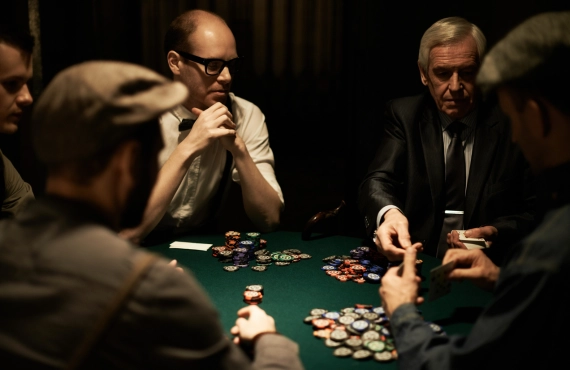
Poker illustrates this as well! Pro players like Daniel Negreanu or Phil Ivey don’t rely on lucky draws—they exploit the pattern by calculating implied odds (potential future wins vs. current bets), sussing out opponents’ tells, and manipulating the table’s psychology. In a 2024 study, researchers found that skilled poker players consistently outperformed less-experienced ones over thousands of hands, which proves that skill will always triumph over any kind of short-term luck.
Even sports betting and horse racing have skill-based elements—professional gamblers analyze stats, injuries, weather, and historical trends to make the most informed bets—turning what looks like its basic guesswork into a data-driven hustle.
The Icons Who Beat the Odds
History is littered with gamblers who turned their gambling skills into legendary tales, like the following players:
- Edward Thorp: The godfather of card counting. His 1962 book Beat the Dealer mathematically proved blackjack could be beaten, which kicked off a casino arms race.
- Phil Ivey: A poker prodigy known for his “no tells” demeanor and his ability to outthink entire tables. His $20 million baccarat edge-sorting scandal (legal but super controversial) showed how far skill can bend “random” games.
- Maria Konnikova: A psychologist turned poker pro who used game theory and behavioral science to win over $300,000 in tournaments—she later detailed her journey in a book called “The Biggest Bluff.”
Skill Does Have Its Limits
Even in skill-based games, luck never fully exits stage left. A poker pro can make all of the right moves and still lose to a rookie’s lucky river card. Blackjack card counters face “variance”—streaks of bad luck that can wipe out bankrolls. And casinos aren’t naive: They impose table limits, shuffle machines, and bans to keep skill in check.
Yes, luck dictates individual hands, rolls, or spins, but skill dictates long-term outcomes. Pros don’t win every gambling session, but they do win enough sessions to stay profitable.
Luck vs. House Edge: The Casino’s Advantage
You’ve seen it happen in the movies—the protagonist rides a streak of luck, stacking chips to the ceiling while the casino nervously looks on. But here’s something that Hollywood rarely shows: Casinos love lucky players. Why? Because no matter how hot your streak is, the house has a secret weapon that is baked into every game. It’s called the house edge, and it’s the reason your “luck” always runs out.
The House Edge: A Slick Little Tax
The house edge isn’t a shadowy conspiracy—it’s just good ol’ math. Specifically, it’s a percentage that guarantees that the casino will profit over time. You can think of it as a small hole in your wallet. For every dollar that you bet, a fraction of it drops into the casino’s vault.
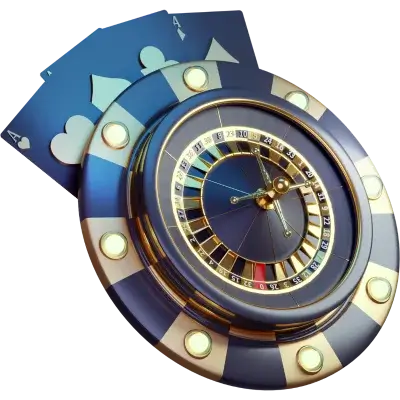
Take roulette, which is the poster child of casino glamour. In American roulette (the one with 0 and 00), the house edge is 5.26%. That means for every $100 you bet, the casino expects to keep $5.26, even if you’re having the night of your life. The double-zero pocket? It’s not decoration. It’s profit!
But the edge isn’t always so obvious. In blackjack, where players can actually lower the house edge to 0.5% with perfect strategy, the casino still has a trick up its sleeve: If both you and the dealer bust? You lose. It’s like getting penalized for tying in a race.
Why Luck Can’t Beat Math
Let’s say that you are the luckiest person ever to walk the earth. You hit a royal flush in poker, then a slot machine jackpot, then have a perfect run at the craps table. Congrats! But there is a catch, and it’s a big one: Luck is a sprinter. The house edge is a long-distance runner.
- Slots: That “95% return to player” (RTP) sounds fair, right? But hold up: The house keeps 5% of every dollar fed into the machine forever. Over a million spins, the math doesn’t care about your one big win.
- Baccarat: Betting on the “banker” (house edge: 1.06%) is the “smart” play. But even here, the casino takes a 5% commission on banker wins. It’s like you are paying a toll just to cross the Luck Bridge.
- Lottery Tickets: The house edge here can be 50% or higher. You’re not buying a chance to win—you’re buying a daydream, and the state knows it.
The Ultimate Illusion
Casinos don’t need to rig their games or use shady tactics because they have something way better: father time. The longer you play, the more the house edge takes from your stack. It’s comparable to a river carving through rock—slow, inevitable, and utterly indifferent to your existence.
Even games that feel skill-based, like poker, aren’t immune. Sure, the pros can outplay amateurs, but the casino still takes a fee from every pot. You’re not beating the house; you’re just renting a chair from them.
Fun Fact: If you flipped a fair coin 10 times, getting 10 heads in a row would feel miraculous. But flip it a billion times, and streaks of 10 heads (or tails) become statistically normal. Casinos operate on that billionth flip. Your lucky night? It’s but a mere blip in their never-ending ocean of bets.
So… Can You Actually Win?
Short-term? Absolutely. People win big every day. But long-term? Nope! The house edge is the guarantee that the casino never clocks out. It’s why Vegas has pyramids, canals, and indoor skydiving—they’re not funded by losers. They’re funded by time.
Can You Hack Luck? Strategies and Myths Debunked
We have all heard the stories: A friend’s cousin’s neighbor “beat” roulette with a foolproof betting system. A viral TikTok claims that slot machines go “cold” after a jackpot. And everyone knows that this specific poker table is “cursed” after 9 pm. But here’s the truth: Luck isn’t some glitch that you can exploit. It’s a myth that’s wrapped up in hope—and casinos are counting on you to believe in it.
Next up, we dismantle the most seductive gambling myths and see why they’re still alive and kicking, even when science says otherwise!
The Martingale strategy really does sound genius: Double your bet after every loss. Eventually, you’ll win and recoup all losses! What could possibly go wrong?
The Reality: This is the financial equivalent of playing Jenga on a treadmill. Let’s say that you start with a $10 bet on red in roulette. You lose. You bet $20. Lose again? $40. Then $80. By your sixth loss, you’re tossing $640 at the table just to claw back $10. And Roulette’s 5.26% house edge means the odds never improve. Add table limits (most cap bets at $500-$1,000) and finite bankrolls, and you’re one bad streak away from a financial walk of shame. Casinos aren’t afraid of Martingale users—they love them.
“That machine hasn’t paid out in hours—it’s definitely due for a jackpot!”
The Reality: Slots all run on RNGs (random number generators), which spit out thousands of numbers per second. Each spin is independent, like a digital coin toss. A machine that hasn’t paid in hours has the same odds on the next pull as one that just hit the jackpot. That “hot streak” that you recall? It’s survivorship bias. You just conveniently forgot the 200 losses between wins.
From blowing on dice to wearing “lucky” red underwear, gamblers do love their rituals. And hey, if it makes you feel better, there’s no harm in it—just don’t confuse your “I’m feeling luck” vibes with victory.
The Reality: A 2010 study found that superstitions do boost people’s confidence, and that can improve performance in skill-based tasks (like free throws). But in pure chance games? Rituals are placebo pills. They trick your brain into feeling control where none exists. Casinos know this. That’s why they don’t care if you pick your own dice or rub the slot screen—it keeps you playing.
Why We Can’t Quit These Myths
Our brains are wired for storytelling, not statistics. We remember that one time that doubling down worked, not the nine times it made us eat ramen for two weeks. This is what is called confirmation bias. Add gambler’s fallacy (“I’ve lost five times—I’m owed a win!”) and the illusion of control (“My lucky baseball cap changes the dice!”), and you’ve got a recipe for myths that just won’t die.
Casinos lean into these myths because they’re really profitable. Slot machines light up and chirp to mimic “near misses,” and that tricks you into thinking that you almost got lucky. Roulette screens display past numbers to fuel the illusion of patterns. It’s all theater—and you’re buying a front-row seat.
The Only ‘Hack’ That Works
Want to beat the casino? We have a cheat code for you: Walk away.
The house edge guarantees that the longer you play, the more you lose. Betting systems? They’re just fancy ways to lose faster. Lucky undies? Cute but totally irrelevant. The real secret? Treat gambling for what it is—entertainment, not profit.
So the next time that someone tells you a “guaranteed” strategy, just smile and nod. After reading this, you’ll know that the only thing that’s luckier than winning? It’s knowing when to quit and gambling responsibly!
The Psychology of Winning and Losing
You’re at a blackjack table, down $200, when you finally get dealt a 21. OMG! Your pulse quickens. The dealer slides over your chips, and suddenly, the frustration of the last hour melts away. That rush? It’s not merely excitement—it’s dopamine, your brain’s “reward” chemical, flooding your system like a shot of adrenaline. And it’s not random biology, as casinos, slot machines, and lottery tickets are engineered to exploit it.
Winning triggers a high that is so potent that even near-misses—like two cherries and a lemon on a slot machine—activate the same neural fireworks. Your brain doesn’t care that you lost. It fixates on the “almost,” releasing more dopamine to keep you hooked. But when you lose? Cue the crash. The brain’s reward centers go dark, and now you are chasing that high like a caffeine addict chasing a third espresso.
This cycle fuels the illusion of control, and if you’ve ever blown on dice before rolling or worn any “lucky” garment of clothing to a poker game? It’s not just a harmless quirk—it’s your brain’s desperate attempt to turn chaos into order. In a famous study, people paid five times more for lottery tickets they “chose” themselves, convinced that their numbers were somehow better. Guess what happened? They lost just as often.
And then there’s chasing losses—a really dark side of gambling psychology. After a losing streak, logic takes a vacation. You start thinking, “If I just bet one more time…” It’s not greed driving you; it’s your brain’s refusal to accept that the $700 you lost is gone forever. Casinos compound this with free drinks, lights, and sounds that mimic wins (even when you lose). They’re not selling the games—they’re selling players hope.
None of this is accidental. Slot machines are programmed to create “losses disguised as wins” (e.g., betting $1 to “win” 50 cents). Your brain still gets a dopamine hit, even as you get poorer.
What Does Science Say About Luck in Gambling?
You’ve heard it at the casino tables: A person excitedly saying, “I’m feeling lucky tonight!” But what if science told you luck isn’t some cosmic favor—it’s just your brain playing tricks on math? Let’s unpack what decades of research have revealed about the myth of luck, the tyranny of probability, and why we’re all so terrible at accepting any kind of randomness.
The Illusion of Randomness
Casinos live and breathe on randomness, but our brains hate it. Games like slots and roulette use RNGs, which means every outcome is unpredictable. Yet studies have shown that gamblers consistently see patterns in chaos, like believing a slot machine is “due” for a jackpot after a losing streak (the Gambler’s Fallacy) or that a basketball player on a “hot streak” can’t miss (the Hot-Hand Fallacy).
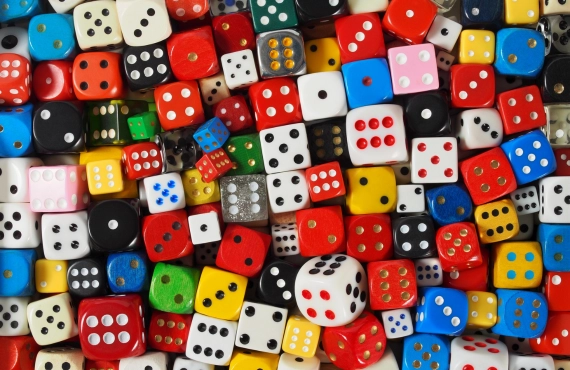
And it’s not just wishful thinking—it’s a cognitive glitch. Humans are wired to detect patterns, even where none exist. In one experiment, habitual gamblers were more likely to engage in probability matching, betting on rare outcomes at the same rate they occurred, despite statistics favoring a “maximizing” strategy (e.g., always betting on the most probable outcome). Basically, we’d rather invent a story about luck than stare into the void of pure chance—even if it stares back at us.
Luck vs. Probability: The Cold, Hard Math
Is luck real? Statistically, no. Every casino game has a built-in house edge, a mathematical guarantee that the casino profits in the long run. Take the following games, for example:
- Roulette: A 5.26% house edge in American roulette ensures that for every $100 bet, the casino keeps $5.26, no matter how “lucky” you feel.
- Blackjack: Even with perfect strategy, the house edge hovers around 0.5%—small but totally unshakable.
Research on online gambling logs shows that outcomes follow predictable probability distributions, with net losses behaving like random walks—meaning streaks of wins or losses are just statistical static, not any kind of fate. As mathematician Pierre-Simon Laplace once said, “Probability is nothing but common sense reduced to calculation.”
The Psychology of ‘Feeling Lucky’
Luck isn’t some kind of force—it’s a feeling. Dopamine floods our system during near-misses and tricks us into thinking we’re “so close” to winning. The near-miss phenomenon is so potent that it activates the same brain regions as actual wins, and that keeps players playing.
Superstitions are placebos for a sense of control. As psychologist Richard Wiseman said, “Lucky people generate their own good fortune via four principles: maximizing opportunities, listening to intuition, expecting good luck, and turning bad luck into good.” In other words, luck is a mindset, not mojo.
When Skill Masquerades as Luck
As we said, not all casino games are the same, and research shows that belief in luck vs. skill varies by game type:
- Lotteries/Baccarat: Belief in luck drives participation.
- Poker/Sports Betting: Skill-based confidence (e.g., bluffing, analyzing odds) keeps players engaged and coming back.
But even in skill-based games, randomness looms large. A poker pro might calculate the pot odds perfectly, but a rookie’s lucky river card can still upend logic.
Science boils luck down to two hard truths:
- Randomness is absolute—RNGs and probability guarantee that all outcomes are indifferent to your “lucky” rituals.
- Perception is everything—Our brains reframe randomness as luck to cope with uncertainty.
As mathematician Persi Diaconis famously quipped, “Probability isn’t just about numbers—it’s about understanding what we’re willing to call random.” So the next time you’re gambling online or at a casino, don’t forget that the house isn’t lucky, either. It’s just way better at math.
Conclusion: The Real Truth About Luck and Gambling
We have put all of our cards on the table, and here’s what we’ve got: Gambling isn’t a war between you and luck—it’s a biased game of math, psychology, and cold, hard statistics.
Keep reading for a quick refresher on what we learned when it comes to the science of luck in gambling:
- “Luck” is a coping mechanism—it’s just a way to dress up randomness in a story we can stomach.
- Casinos are built on one single rule: The house edge guarantees that they profit, even when you win.
- Skill can tilt odds—but only in games like poker, and even pros lose to bad beats.
- Your brain is the casino’s BFF: Dopamine turns near-misses into addiction fuel.
- Rituals are only theater: Your lucky charm or superstitious rituals won’t change an RNG.
Gambling isn’t evil—it’s entertainment. But treat it like a concert ticket, not a retirement plan. Set a budget, walk away when it’s gone, and never chase losses. Casinos aren’t magic kingdoms; they’re businesses designed to profit from hope.
When you’re at a casino, you’re not playing against fate—you’re playing against the one force that never loses, and that’s time. And the longer you stay? The more math will bleed out your funds.
So here are the facts: Luck doesn’t exist, but probability does. And the house? Well, it’s just way better at arithmetic.
Tag that one friend who is convinced that they have cracked the “lucky code” and let them see in black and white that the odds are stacked against them. Knowledge won’t make you rich, but it sure will keep you from going broke!

Alyssa contributes sportsbook/online casino reviews, but she also stays on top of any industry news, precisely that of the sports betting market. She’s been an avid sports bettor for many years and has experienced success in growing her bankroll by striking when the iron was hot. In particular, she loves betting on football and basketball at the professional and college levels.




